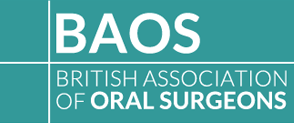What is Oral Surgery?
The specialty of Oral Surgery deals with the diagnosis and management of pathology of the mouth and jaws that requires surgical intervention. Oral Surgery involves the treatment of children, adolescents and adults, and the management of dentally anxious and medically complex patients.
Primary care-based General Dental Practitioners (GDPs) are expected to undertake routine Oral Surgery care, such as dental extractions, as part of their general dental services contracts. More complex Oral Surgery care is provided by specialists in Oral Surgery and by Oral Surgery and Oral & Maxillofacial Surgery consultants (including academics) who may work in primary care or secondary care settings. Secondary care-based Oral Surgery consultants would not normally be found in stand-alone units; rather, they would be integrated with OMFS units with the opportunity for skill mix and multi-disciplinary team working. Postgraduate dental trainees working under consultants may also provide Oral Surgery care.
Oral Surgery care is provided by Oral Surgeons and by Oral & Maxillofacial Surgeons as the clinical competencies of these two specialties overlap. The UK General Medical Council recognises ‘Oral & Maxillofacial Surgery’ as a medical specialty.
Given the overlap between Oral Surgery, Oral & Maxillofacial Surgery and Oral Medicine, the workforce within local areas may comprise a variety of performers from different specialties.
Depending on the decisions and information provided by the referring clinician, patients with similar Oral Surgery/ Oral Medicine conditions may be seen by a specialist in Oral Surgery, Oral & Maxillofacial Surgery or Oral Medicine.
Careers in oral surgery are many, varied and often interchangeable. Career pathways can be fluid depending upon local and individual requirements. The basic definitions and requirements of the most common roles include:
NHS Consultant in Oral Surgery – Registration on the GDC specialist list for Oral Surgery is a requirement for these posts. Other qualifications that may be helpful, but are not mandatory, in being successfully appointed include:
- CCST
- ISFE
- Leadership and management training
- Extended clinical training
Honorary (academic) Consultants in Oral Surgery – are employed and paid by higher education institutions; usually Universities (hence ‘honorary’). These posts demand the same requirements as an NHS Consultant, as well as a higher degree, usually a PhD.
NHS SAS Grades (Specialty Doctor, Associate Specialist and Staff Grades)– are commonly employed in OMFS units throughout the UK. Depending upon the unit within which they work, these individuals will carry out, often on an autonomous basis, surgeries listed in the Oral Surgery Curriculum. They may also have OMFS extended competencies.
SAS clinicians may or may not be on the GDC specialist list. Specialist List Assessed Application (SLAA) is currently only available to this group by evidencing Academic Equivalence. Further information about this can be found on the GDC website.
Primary Care- Specialist Oral Surgeons can also practice in Primary Care either as part of an NHS contract, or privately.
Some GDPs who are not on the GDC specialist list for Oral Surgery, have enhanced skills and experience in Oral Surgery. They are sometimes called ‘Dentists with Extended Skills’, or DES. In England and Wales, these individuals can perform Level 2 procedures within a Managed Clinical Network (MCN). Guidance documentation towards this Tier 2 accreditation has been developed by NHS England, however, currently the precise definition of this process is open to local interpretation and therefore accreditation criteria differ between regions.
Further information regarding Levels of Oral Surgery procedures can be found in the Oral Surgery CommissioningGuide https://www.england.nhs.uk/commissioning/wp-content/uploads/sites/12/2015/09/guid-comms-oral.pdf
January 2025
